An allergy is your body’s overreaction to substances that are usually harmless to most people. These substances that cause allergy are called allergens. When you come into contact with an allergen, your immune system treats it as a threat. It releases chemicals like histamine, which cause symptoms such as itching, sneezing, swelling, rash, or breathing problems.
Common allergens include:
Allergies can affect your skin, nose, eyes, lungs, stomach, or the entire body. The reaction can range from mild irritation to serious medical emergencies like anaphylaxis.
Skin allergies happen when your immune system reacts to something that normally doesn’t cause harm, such as pollen, food, or chemicals. These reactions can lead to rashes, itching, redness, or swelling. Common types of skin allergies include:
People need treatment for allergies to relieve uncomfortable symptoms, prevent serious reactions (like anaphylaxis), and improve daily quality of life. Untreated allergies can lead to chronic issues like asthma, sinus infections, or skin problems, and in some cases, can become life-threatening.
Allergies happen when your immune system mistakenly sees a harmless substance (called an allergen) as a threat. Instead of ignoring it, your body reacts by producing IgE antibodies. These antibodies trigger the release of histamine and other chemicals that cause inflammation and allergy symptoms.
Key reasons why allergies occur:
Once your body becomes sensitised to an allergen, it may react every time you’re exposed, even in tiny amounts.
When allergens enter your body, your immune system may produce high levels of IgE antibodies (Immunoglobulin E). These antibodies trigger the release of histamine and other chemicals into the bloodstream, leading to various allergic symptoms. The symptoms of allergy in the blood cannot be seen but they cause noticeable effects throughout the body.
Common symptoms linked to blood-borne allergic reactions include:
In serious allergic reactions like anaphylaxis, there is a sudden drop in blood pressure, difficulty breathing, and a risk of shock, which needs immediate emergency care.
Doctors recommend starting treatment when certain signs are evident. You should not wait if:
Starting treatment early helps manage symptoms, prevent severe reactions, and improve overall quality of life. Treatment plans may include medications, lifestyle adjustments, or long-term solutions like immunotherapy based on the type and severity of the allergy. Seek medical help promptly.
If you think you have an allergy, the first step is to identify the trigger - this could be food, dust, pollen, medicine, or skincare products. Keep track of when and where your symptoms appear, and visit a doctor for allergy tests such as IgE blood tests or skin prick tests. Once the allergen is known, avoid it as much as possible by checking labels, keeping your surroundings clean, and using air filters if needed.
Follow your doctor’s recommendation. Home remedies like cold compresses, aloe vera, coconut oil, or steam inhalation can also help with mild symptoms. However, if you experience severe symptoms like breathing difficulty, swelling of the face or throat, or dizziness, seek emergency medical care immediately. In some cases, long-term treatment like allergy immunotherapy may be advised for better control.
Home Remedies for Allergy
While medical treatment is often necessary for managing allergies, several home remedies can help alleviate mild allergic reactions and provide comfort. Some effective home remedies include:
The home remedies listed may help relieve mild allergy symptoms. They are not a substitute for professional medical care. Always consult a doctor or allergist before trying any remedy, especially if you have severe, persistent, or multiple allergies.
Home Remedies to cure Ringworm Itching
Ringworm is a common fungal infection that affects the skin, causing a red, circular rash with raised edges and clearer skin in the middle, resembling a ring. Despite its name, it has nothing to do with worms. The infection is caused by a type of fungus called dermatophyte, which thrives on the outer layers of the skin, nails, and hair. It is highly contagious and can spread through direct skin contact, contaminated surfaces, or shared personal items. Ringworm can occur anywhere on the body, including the scalp, feet (athlete’s foot), and groin area (jock itch).
Ringworm can cause intense itching, but several home remedies can help soothe the discomfort and support healing. Here are some effective natural treatments:
The home remedies may provide temporary relief. They are not a substitute for medical treatment. Always consult a dermatologist for proper diagnosis and antifungal medication, especially if symptoms persist or spread.
While these options fall under the commonly used name of medicine to stop itching, it’s important to understand that not all treatments are suitable for every individual.
Disclaimer: Always consult a qualified medical professional before starting any medication or treatment. A doctor can help you find the right ways to get rid of skin allergies based on your specific condition and symptoms. This information is for general awareness only and should not replace personalised medical advice.
Early treatment gives the best results. If you notice any of these symptoms for a long period of time, do not ignore them. If you are from Bangladesh and looking for consultations for allergy, Bangla Health Connect can connect you to experts at leading hospitals worldwide.
.png)
Through Bangla Health Connect, Bangladeshi patients can access world-class hospitals in India, Thailand, and other countries that specialise in diagnosing and treating different types of allergies. Many patients travel abroad for accurate allergy testing, advanced immunotherapy, and specialised treatments that may not always be available locally.
Here’s why Bangladeshi patients choose allergy treatment with Bangla Health Connect in hospitals worldwide:
For Bangladeshi patients, Bangla Health Connect offers a reliable pathway to expert allergists, advanced therapies, and affordable global care for all types of allergic conditions.
Bangla Health Connect connects patients with leading hospitals that specialise in allergy and immunology care. These centres are known for their highly skilled allergists, immunologists, and advanced treatment methods for various types of allergies. With dedicated support services for international patients, Bangladeshi patients receive timely, effective, and compassionate allergy care abroad.

.jpg)


.png)
.png)

.jpg)






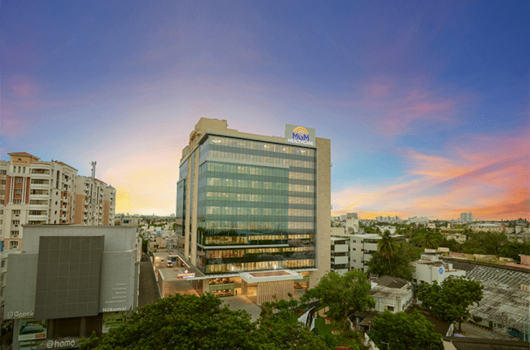


.png)

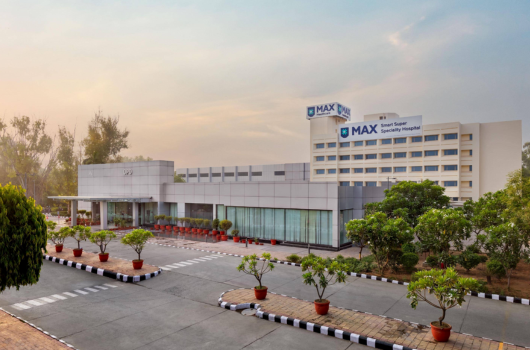

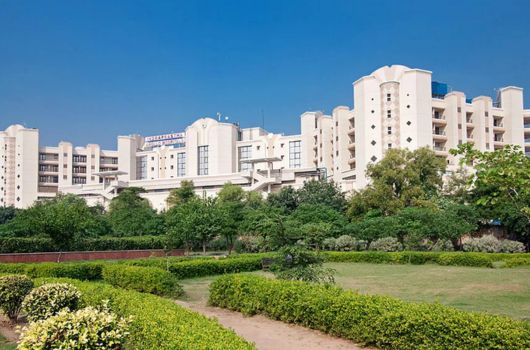


.jpg)


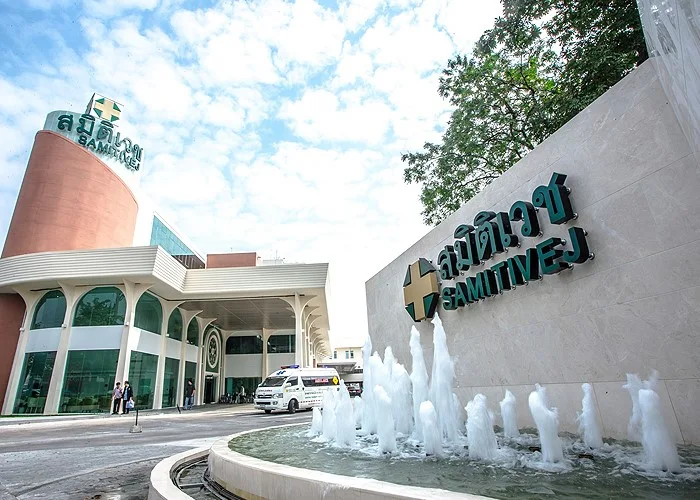
These hospitals follow international treatment guidelines and provide full support for Bangladeshi patients through Bangla Health Connect.
The average allergy test cost in India ranges from $25 to $180, and in Thailand, it ranges from $470 to $1,600. The final cost may vary based on multiple factors such as the treatment method, hospital location, and type of allergy. Before viewing the detailed table of treatment-wise costs, it's helpful to understand what influences these expenses most.
Several factors influence the total cost of treating allergy and itching in India:
Note: India is well known for offering cost-effective advanced treatment. Hospitals combine affordability with strong clinical outcomes, supported by skilled experts and the widespread availability of generic medicines.
Note: Thailand’s hospitals are often promoted as premium destinations for international patients. Their higher costs reflect the use of advanced imported medicines, luxury infrastructure, and all-inclusive patient care packages.
The costs listed are approximate and may vary based on hospital, location, and patient needs. Consult the healthcare provider for accurate and updated information.
The currency conversion rates in the table above are based on data from November 2025.
For more help on cost estimates and personalised guidance, contact Bangla Health Connect.
Allergen immunotherapy (AIT) is a proven, long-term treatment that not only reduces allergy symptoms but also significantly improves patients’ overall health and quality of life. By altering the immune response, AIT can prevent the worsening of allergic rhinitis into asthma and reduce the risk of developing new allergies, benefiting up to 75% of patients even three years after completing therapy.
Success in treating allergies and itching means finding the cause, managing the symptoms, and improving the patient’s daily comfort and skin health.
With early diagnosis and proper treatment, most patients recover well or manage their condition with ease. Long-term success depends on regular follow-up, lifestyle changes, and avoiding known allergens.
Top hospitals focus on accurate diagnosis, advanced therapies, and holistic care for patients with allergy-related conditions. Their approach includes:
This combination of precise diagnostics, expert interventions, and long-term management helps reduce allergy symptoms, improve quality of life, and prevent future allergic flare-ups.
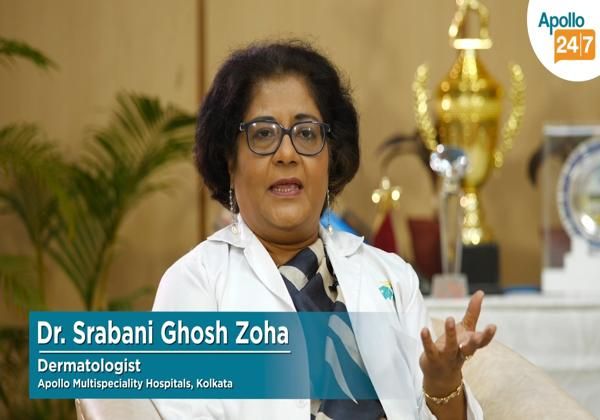
Dr. Srabani Ghosh Zoha, a renowned dermatologist at Apollo Multispecialty Hospitals, Kolkata, shares expert insights on the proper management of eczema. Eczema, also known as atopic dermatitis, is a skin condition that leads to dryness, redness, and persistent itching.
Dr. Zoha explains the causes of eczema, its common triggers, and how it affects daily life. She stresses the importance of prevention and lifestyle adjustments over simply treating flare-ups. She stresses on the moisturization of the skin because dry skin increases irritation, to wear cotton clothes, and to watch food if allergic to foods. Since eczema can affect the quality of life, she gives hope to people by saying eczema is manageable with the right care and treatment. Apollo Hospitals are trusted by patients for advanced allergy diagnosis, personalised care plans, and long-term skin health support. Their team of specialists helps patients live better, itch-free lives.
Bangla Health Connect helps Bangladeshi patients get quick and reliable treatment for allergy and itching problems. It makes the medical journey smooth and stress-free from start to finish.
Bangla Health Connect makes this process simple and supportive, from travel arrangements to ongoing medical guidance, ensuring Bangladeshi patients receive high-quality care with peace of mind. With over 60,000 Bangladeshi patients assisted, Bangla Health Connect has built strong trust through clarity, care, and personal support.
Contact Bangla Health Connect today to begin your treatment journey with trusted support every step of the way.
Note: Bangla Health Connect does not provide medical advice of any kind.
Md Asadujjaman from Bangladesh shared that he had a positive experience with Dr Sajai Varghese, a top dermatologist at Apollo First Med Hospitals, P.H. Road, Chennai. He mentioned that the doctor’s expertise, clear guidance, and compassionate care made a meaningful impact on his treatment. He expressed deep gratitude and recommended Dr Varghese to others seeking quality dermatological care in India.
✅ Share Your Reports - Bangla Health Connect connects you with trusted hospitals worldwide.
✅ Get treatment plans from leading Hospitals worldwide
✅ Choose the one that fits you
✅ Let us handle the rest
Yes. Most skin allergies are treatable with proper diagnosis and care. Treatment includes antihistamines, creams, and avoiding triggers. Visit a dermatologist immediately.
No. Ringworm is not a skin allergy but a fungal infection. However, it causes similar symptoms like itching and rashes. It is treatable with antifungal medicine. Always consult a dermatologist for accurate diagnosis.
Symptoms include red patches, swelling, itching, burning, dryness, and in some cases, blisters. Some may also have recurring flare-ups. Symptoms can vary from person to person. Seek medical advice from a certified skin specialist.
Common causes include food, dust, pollen, pet dander, insect bites, or certain soaps and cosmetics. Skin conditions like eczema also cause itching. Consult a doctor or allergist to identify your specific triggers and suitable treatment.
In many cases, itching can be controlled or eliminated by avoiding triggers and following the doctor’s advice. Chronic allergies may need long-term care. Always follow your doctor’s advice for long-term management.
Yes. Bangla Health Connect helps you with everything from doctor appointments, second opinions, and visa help, and guides you throughout the process.
Yes. Bangla Health Connect helps you choose the right hospital based on your conditions and preferences.
Yes. Thousands of Bangladeshi patients travel abroad safely for skin care. These hospitals follow strict hygiene and provide expert allergy and skin treatment.

